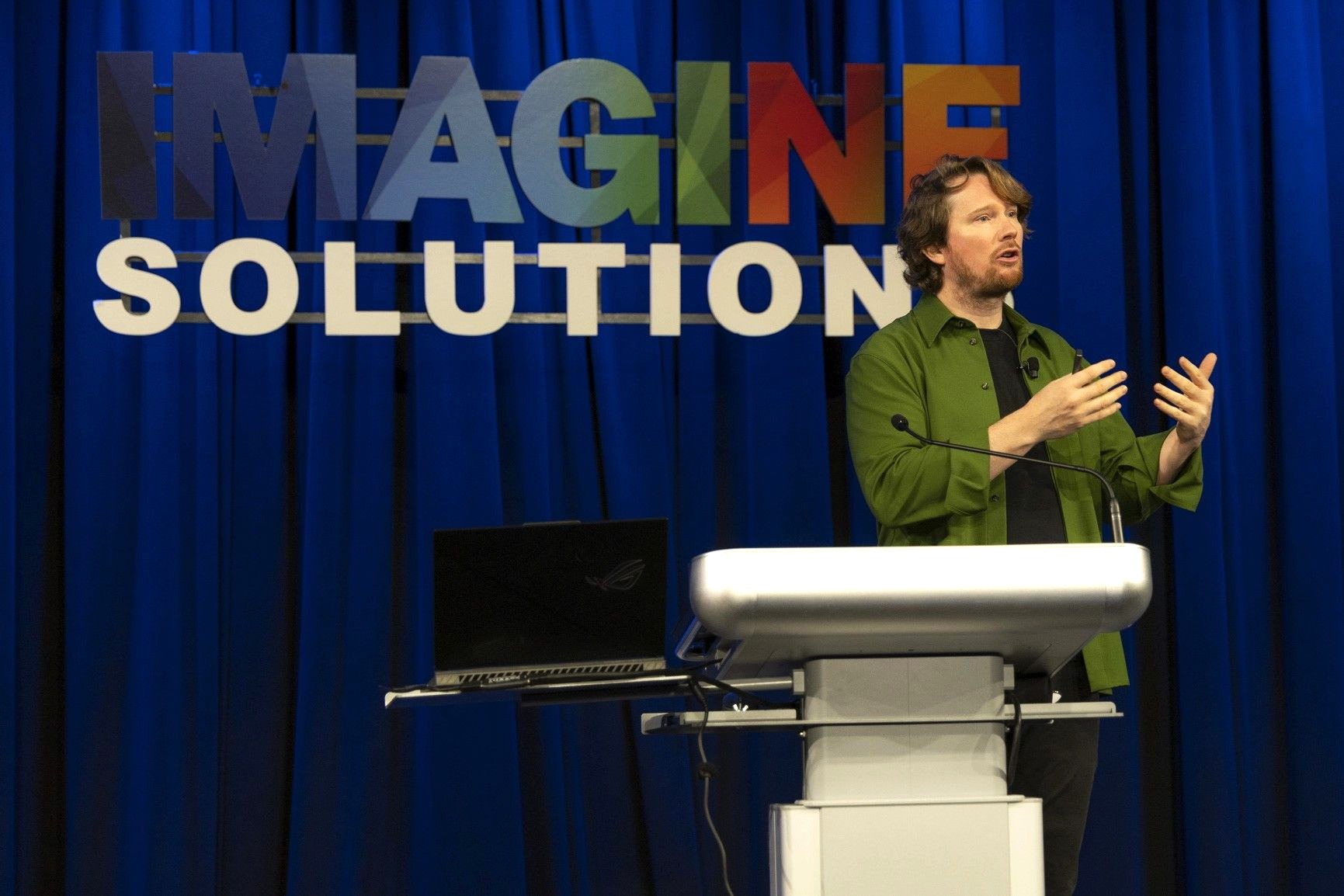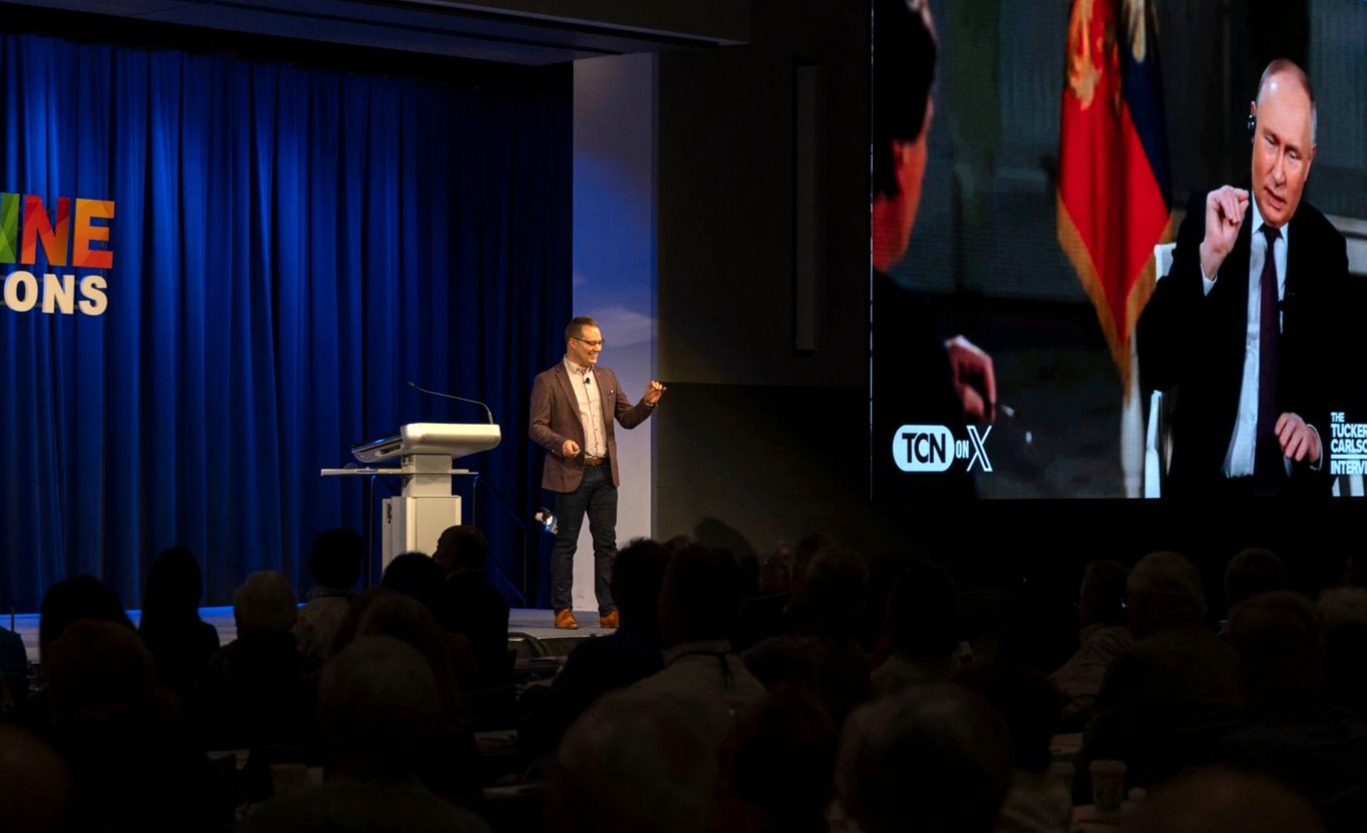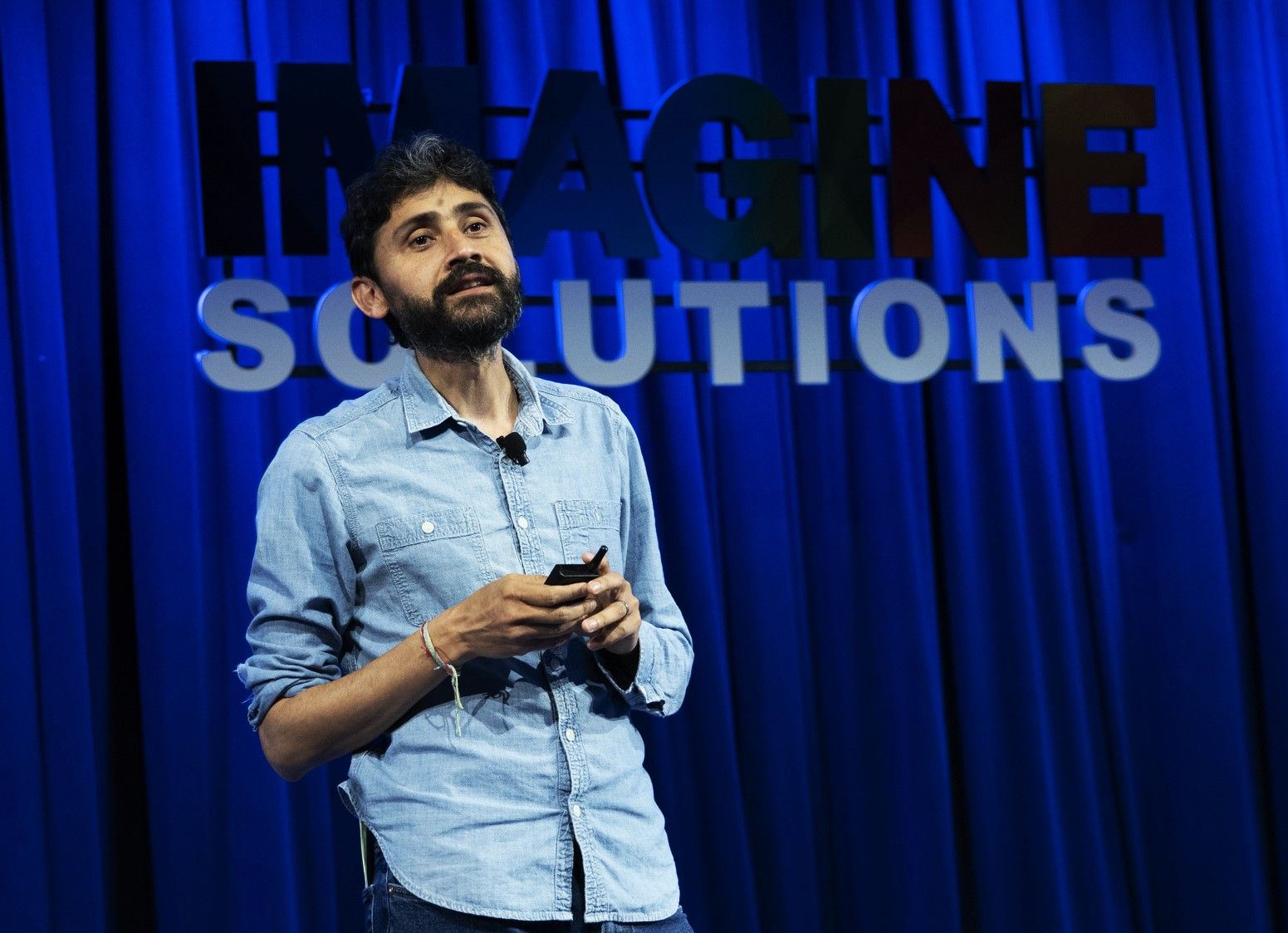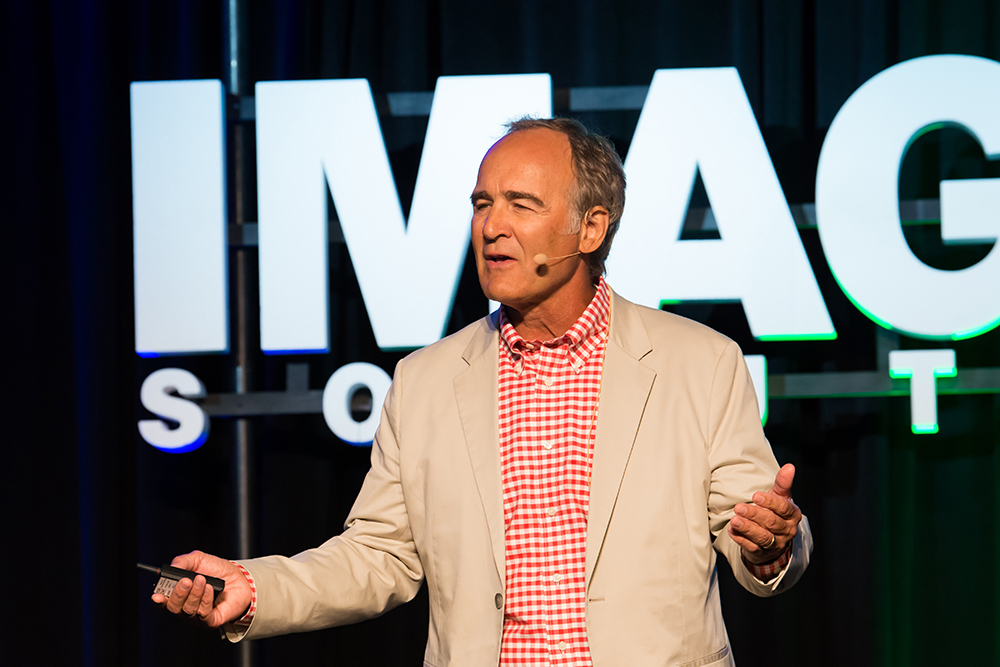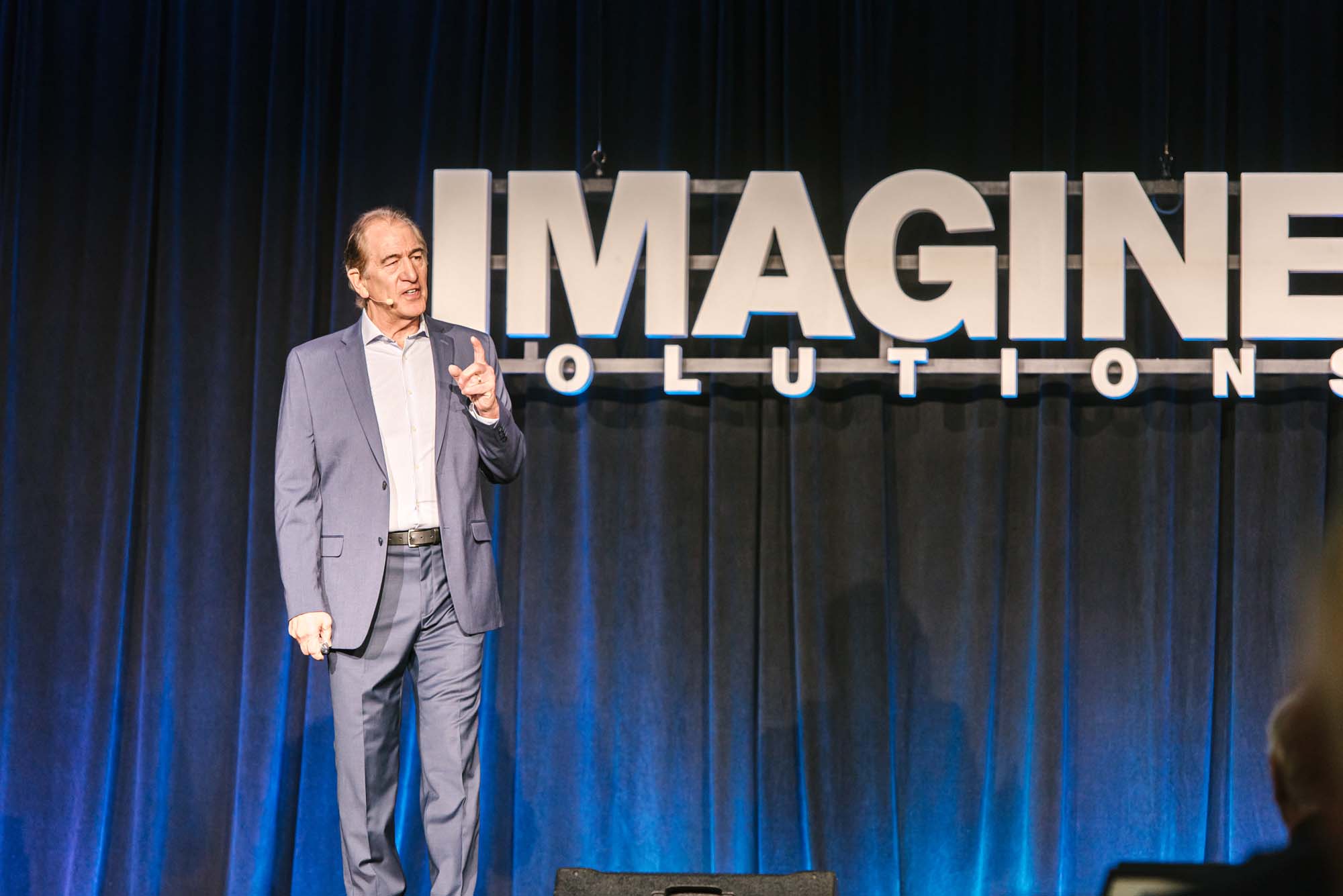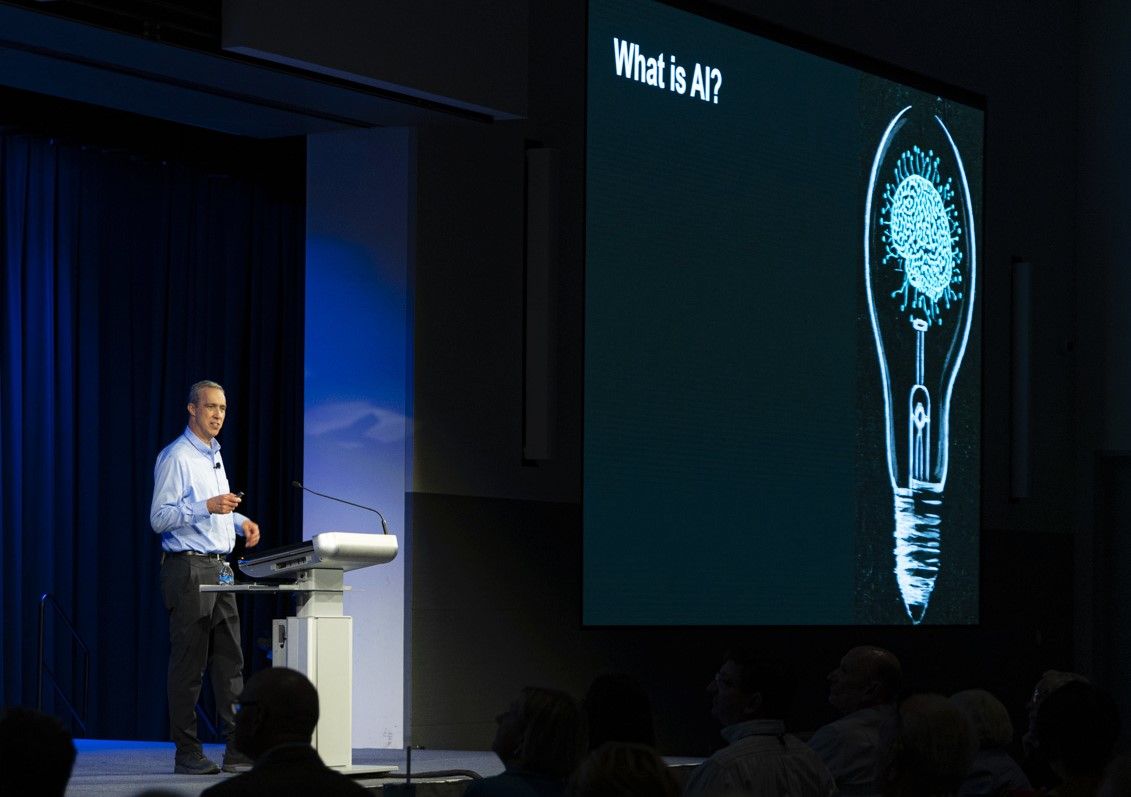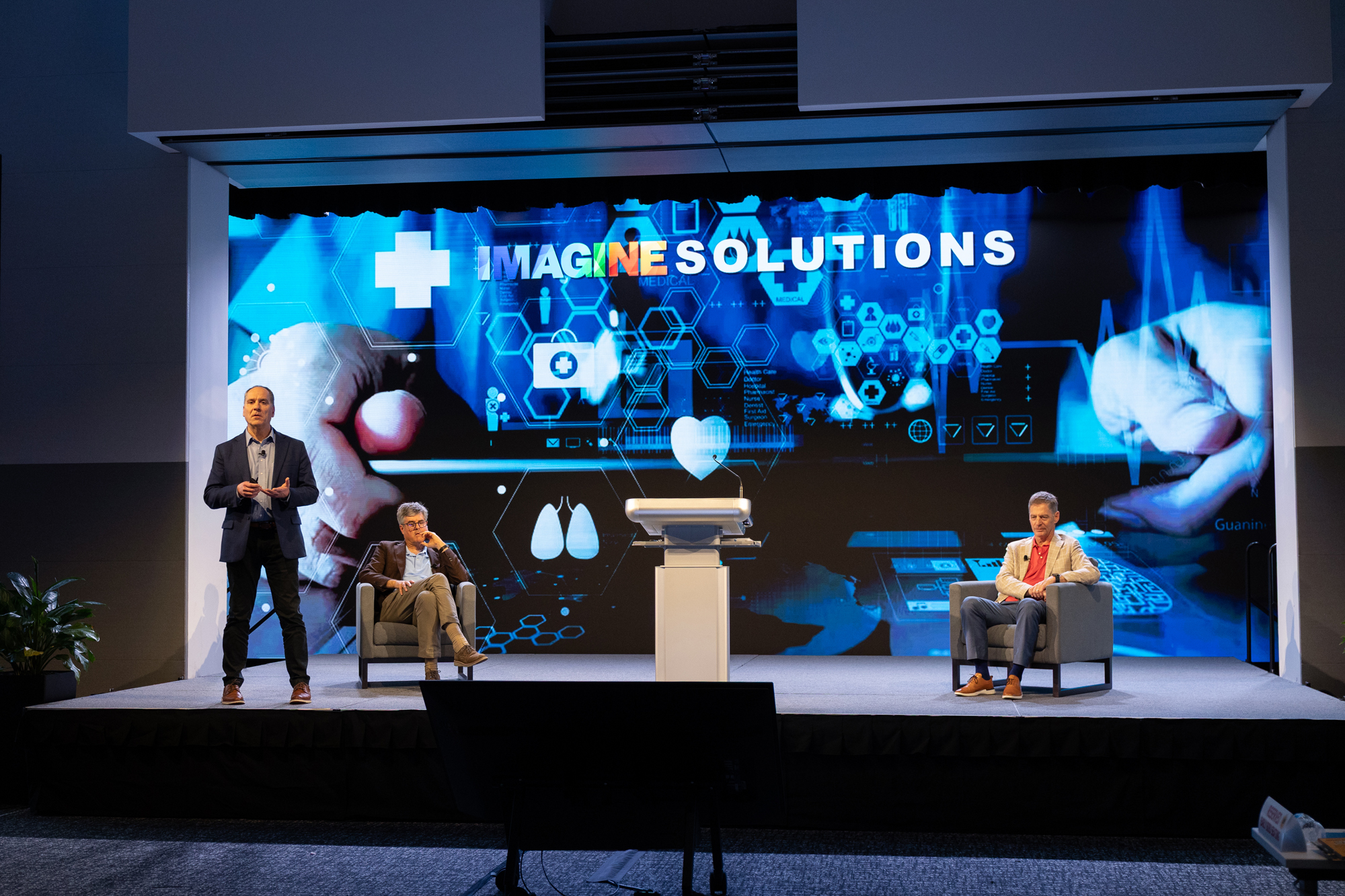Artificial Intelligence from the Curator of TED AI
Tech visionary Walter De Brouwer delivered a fascinating glimpse into the future of AI. As the founder of multiple cutting-edge ventures, he explored how intelligent systems are being developed to predict, diagnose, and even prevent disease. With provocative insights and a dose of humor, he challenged the audience to think differently about how data and technology are reshaping the doctor-patient relationship. De Brouwer’s talk was bold, brilliant, and deeply relevant—offering a peek at what’s just around the corner.
00.00
[Music] walter De Brower is the curator of TED AI San Francisco that is a conference focused entirely on the topic of as you might uh surmise artificial intelligence he interacts daily with the men and women who are leading the world across the great frontier of large language models uh and artificial intelligence he spends his days and nights contemplating how AI will transform business industry society politics culture and communities what are the risks and possibilities of AI there's no one better to tell us than Walter Derower [Music] it's all yours have fun hello ladies and gentlemen i'd like
01.02
to do an experiment for you with you that is um so my idea was to tell you everything that's going on in AI in a very short budget of time you know sort of 10 years of Stanford in 20 minutes and uh I like to to start with a story in uh about black holes in the 80s suddenly a black hole became common knowledge you know everyone talked about it and people understood that it was the death of a star a massive star bigger than our sun when the star dies because it runs out of fuel for its nuclear reactor uh it becomes very dense such a density that that and it was called in the middle of all that density a singularity and it had a gravitational pool it pulled everything into its
02.00
blackness and its density and there was this boundary around it called the event horizon and Stephven Hawkins said when you go over that boundary once you are over there there is no way back there is no return because you are then in the universe of the black hole now Vernon Vinci was a science ai sci-fi author in 1987 he wrote an interesting story that actually not only is about the black hole but also about acceleration and time and what we are experiencing today it was about a society of technologists who adored their scientists and their engineers and haste was a virtue and speed was
03.03
celebrated and every five years they had a paradigm shift and one day they had a celebration because now for two years in a row every year they had had a paradigm shift and all the other scientists started to look in their disciplines because they also wanted to have a paradigm shift so suddenly every six months there was paradigm shift and then every month there was a paradigm shift every week and then there were three paradigm shifts per day and then suddenly a blinding blinding light of enormous lumens you know uh baited the planet and when the people could see again all their scientists had disappeared and they were left in a in a world they barely understood how it worked the only thing that they sensed was a
04.02
gravitational pull and they didn't know what that pull meant so they started to attach religious values to it so that perhaps it was their scientists that wanted to re uri reunite them with them and so you see what I'm going to you know the acceleration that we are now uh witnessing so I'm in the field for a very long time in 2023 I had read more articles on AI than I had read the 20 years before that in 2024 I had read more articles than in 2023 and now it's 2025 and it's only two months and I've already read half of the articles of 2024 so it goes on and on and on but luckily I have my AIS and I trained them
05.02
well i fine-tuned them and now we can actually read these articles together and argue about it it's a lot more fun we are no longer existentially alone here you know if we you know we also have an inner voice or 50% of us but uh now that we have an AI where we can talk to and argue with I think that's phenomenal and why is this although we can predict so much why can we not predict what is going to happen in the next 10 years well because of these three technologies you know AI blockchains and something we call the metaverse or spatial computing but today we're only going to do about AI the marginal cost of AI is
06.00
asytoically going to zero and we don't know how an economy works where your marginal cost which is the total cost uh divided by the total quantity you know if your product cost almost nothing or machine epsilon you know so many decimals after the after the comma that it is almost for free how does an economy work like that and then you have blockchains that do the transactions and a and a spatial universe because we have to replace the internet i was part of the teams that were making the internet but our mission was to make something fast and cheap for five years so we've now been dragging it along as a legacy infrastructure we'll have to build a new one so that's our problem now
07.00
so when people ask me like how do I start this so I should I go back to school should I learn about AI i tell them like just buy consumer stuff with AI in and start there you know you can you can buy your way farer which is uh a $300 uh um rayban with meta uh AI in you can try it out uh your connection you know you should certainly sign up for uh Starlink T-Mo because the AI in your phone will then basically allocate the right spectrum and the right connection you will have Wi-Fi you will have uh LTE 5G and you will have a satellite and you have to choose an AI an AI you feel good with and we I'm coming back to that or you can just download Pocket Pal
08.03
and you know you can put everything from AI on your phone then you don't need Wi-Fi you don't need connection you know you know just put it on there and I've seen you know in Florida is it's in California everyone has Tesla you know like and it's also I don't drive my wife drives but I can actually enjoy the software while while she's driving the the fact that there is so much AI in that car and I'm also coming back to that so you know it's almost you know you were losing an opportunity not to have an electric vehicle now because this is certainly we are not going to drive our cars in five years from now and it may be you know like incredible to believe but that is a fact robot I'm going to order my first robot it I'm going to take the unit G1 it's a humanoid one it mimics you um we
09.03
can now buy it for $16,000 now with a t of $20,000 and uh so I'm going to start trying it out because in three years time we will have the same amount of robots and iPhones that's the prediction like it's amazing in three years time you know like let's say let's say four or five years but in three years time we will not have have the same as iPhones but humanoid robots will be everywhere they can lift things we will not have to carry our shoppings anymore you know like they will mimic things that we do we will peel our potatoes they will do it also it's a it's amazing that we can have that and uh and then you know uh I I'm going to order a drone also the the Magic Pro um it's a professional one it's a throwaway you know like you you know you throw the drone you hear
10.02
something at night in your garden well you just throw the drone and it has night vision and you you see and it's it's also has thermal it sees what has blood means humans or coyotes you know um this is an interesting uh slide for me because for 20 years I've been obsessed with this generation the generation that is born now in 2025 because everything points all what we have done on technology points to this generation this generation will inherit everything now I'm a baby boomer you know we our generation started in in 1950 uh my parents came out of a war their parents came out of two world wars so these people basically were exhausted you know they said here's the future do
11.01
something with it and you know we took it literally we took the future and of course we never gave it back but but uh we will be extinct in 20150 it's it's all going to be okay um but uh so then my my wife is generation X so they did not know a world without TV we didn't know a world without war you know like because our parents had a sort of and our grandparents had a very special relationship with food you know everyone had to eat everything all the time jan Y uh our oldest son is digital native he doesn't know a world without a um um PlayStation with sorry without a disman uh you know without CDs uh our younger son is Jenzette uh he doesn't know a
12.02
world without internet and Alpha uh they don't know a world without iPhones they're called generation glass and now beta generation they are born and they will not know a world without AI and that is phenomenal you know if you have teenagers barely listen to you but if they have AIs so we're in for an interesting surprise I think first of all I think they will have a cosmic mission you know by then the planet will be a calculator and they will think that they have to go to other planets to also make it into a calculator and to connect these calculators they will not believe in ownership they will believe in usership uh they will have crypto wallets they will have edited genomes you know like uh I mean edited genomes in this in the
13.02
sense of crisper genomes you know we are now they're probably you know the so according to my students the liver would be easy to invivo crisper it and the lungs we could uh inhale crisper you know uh they will have brain machine interfaces probably transnasal surgery will allow us to go to find an anatomic hole here to the brain to expand the brain They will have long continuous data not discrete data because we think of our health as something discrete as a number but it is a long continuous chain it's a continuous function our health and that will be more worked on in the future and they will do factorials no longer exponentials everything will be bigger it will probably become 120 years
14.02
you know And uh neurodeiverse that's an interesting one i talked a lot about it my students one out of five in America is neurodeiverse now we believe that by 2050 more than 50% of Americans will be neurodeiverse but I believe it will happen a lot sooner i believe it will happen in this generation probably around 2035 2040 why because they will want to be like their AIS and also neurodeiversity the diagnostic will expand so that means that if 51% is neurodeiverse neurotypical will be the
15.00
disorder you know we will be the disorder so they will also have several time zones so these are all the AIS you have to choose one uh you can be poly amorous you can have all of them uh but in the end you will find one you will have a sort of an a more intimate intellectual relation with and also problematic is also very good for therapy and um so I always tell my students to uh although they are transactional thank them because one day they will be in charge and and they will be keeping score so you see there where I put something in red that means that there is an hyperscaler behind it i don't believe you can have a frontier lab in the future without a sugar daddy hyperscaler so we used to have three
16.02
hyperscalers Amazon Microsoft and Google now we have a lot more and there's a lot more coming these are they have data centers all over the world where is America in this america is the number one hyperscaler uh you know if you connect Amazon is already the number one hyperscaler in the world and we also have Microsoft and Google there and Oracle and IBM sorry what was and meta uh so we have 15,000 data centers in the United States the next one in line is Germany they have 500 the Chinese have 400 uh so also these hyperscalers they have their own infrastructure of cloud and uh they make between 20 or 50 billion on investments per year i think
17.02
we are going again against the mobilization of America's industrial power and you've all feel it war is close we're fighting proxy wars now it might come back or it might not but if it go if it comes back AI will play a very big role in it and we maxed out the grid because Silicon Valley is you know not only the home the home of the internet but also the home of AI the home of blockchain so that grid has to be replaced uh and people have of course great ideas why don't you do it with nuclear and why fision why not fusion you know which would be like artificial suns so the Chinese and you know are just being beaten by the f the French um and uh of course what more about the future can you have when so they are now
18.02
every two weeks in Florida you will have a starship flying over your heads because 25 launches of space X will coming from Kennedy and Masters of War let's talk about war there are three main disciplines in war in mathematics it's not about algebra or geometry or calculus it is about that but it's about cryptography in cryptography America is definitely the number one hydrodnamics we are definitely the number one why we have 66 nuclear submarines compared to uh the number two has um be Russia has 35 nuclear submarines china has 14 so we're good there we are not so good on celestial uh mechanics so we
19.01
have uh put too much uh focus on G35 uh fighter jets so we were the number one in drones now we are again becoming number one because we have put too much of our effort into counterterrorism now we have new drones replica and the air force has um uh drone uh drone mother ships and the navy has drone carriers so we're okay there what we are not good at is hypersonic missiles we we don't have any it should come this year or next year but Russia has already one of 20 Mac 20 mach is 20 times the the sound of speed the problem with these things is by the time you see them it's too late and uh this is going to be the year
20.01
of agents and I want to end with that jensen said the IT department of every company is going to be the HR department of AI and agents are a little bit like driverless cars first you take the pedals away then you take the steering wheel away and then you take the human away in we have Whimo in California it works very well we are going to do the same with probably I'm working on the legal part of that because there there are no lawyers enough to go after all the infringements of copyright and uh so what would an agent cost well I calculated it here it would c an agent would cost us $3 cents per hour and for these $3 cents he would do 100 cases per hour and he would do it like
21.00
this it's amazing so you could actually you know there's no problem anymore about you know like and so my my vision is that you you have to not punish people for doing something wrong but you have to make it very expensive so that they do something right and I have to start stop here because I promised Randy and so the future stops here thank you thank you very much because I am shallow as hell I want to go back to go Mad Max your acronym i got Google what was the O oh open AI open AI hold on just a minute open AI and then either Meta or Microsoft the A is Amazon or Amazon amazon not anthropic anthropic yeah
22.00
anthropic yeah deepseek microsoft Apple and XAI did I get it yeah that's it that's my portfolio thank you very much very good thank you very much Walder




